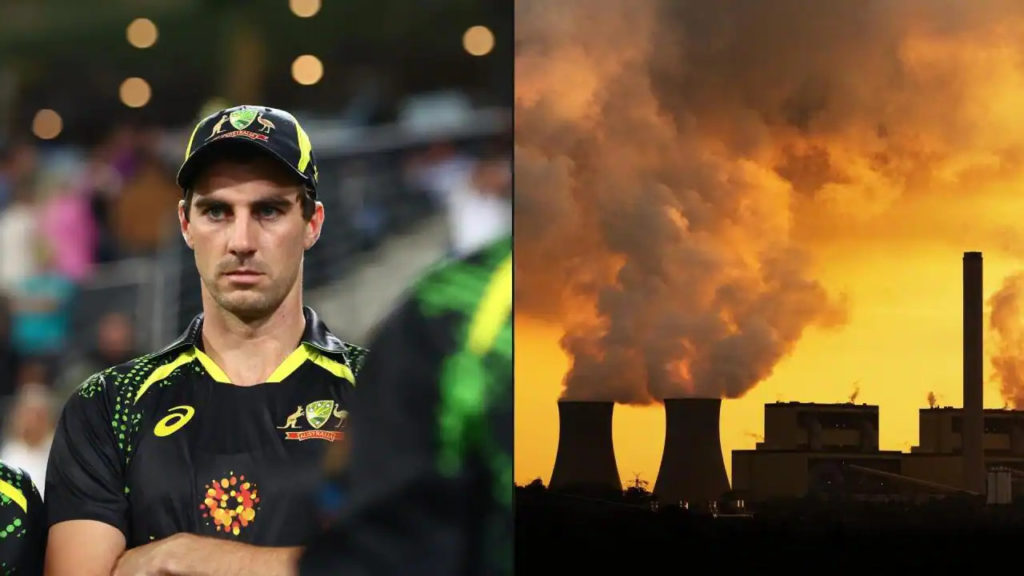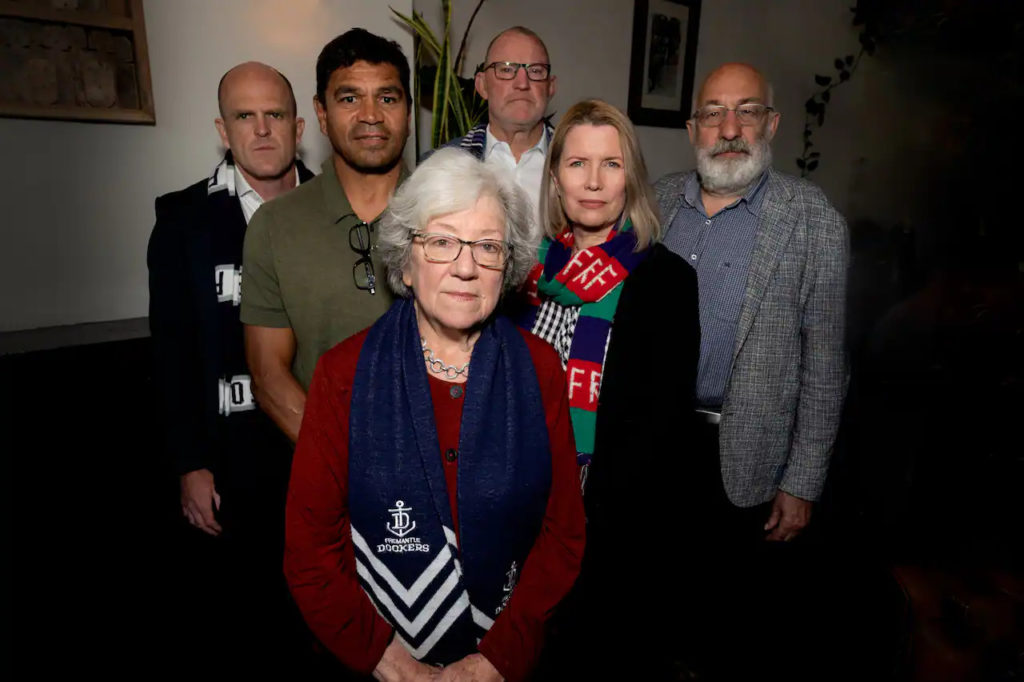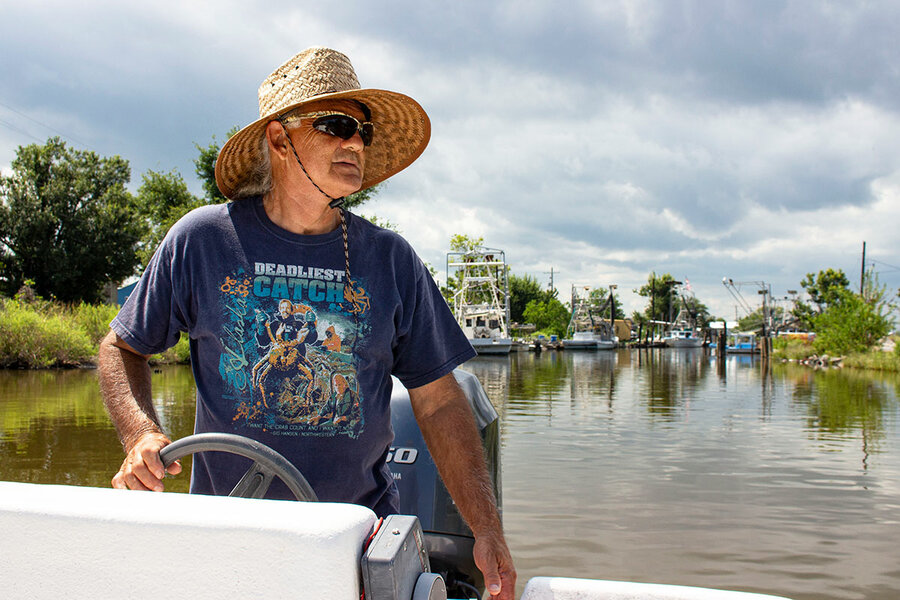Original publication by Jessica Bahr for sbs.com.au on 20 October 2022
The intersection of players’ values, climate change and corporate partnerships has been in the spotlight this week after numerous athletes raised objections to clubs accepting sponsorship from fossil fuel companies

In the last week, Australian cricket captain Pat Cummins, the Fremantle Dockers AFL club and the Diamonds netball team have all made headlines after objections to the companies sponsoring their teams.
In the arts sector, gas giant Santos will no longer be sponsoring the Darwin Festival following a campaign by environmental activists and traditional owners.
While athletes and public figures have a long history of raising awareness for a variety of issues and causes, climate change and fossil fuel companies are increasingly gaining focus as public interest in environmental issues rises.
So does it matter which companies sponsor sports teams and events, and should athletes be expected to have opinions on the names on their jersey?
Jasper Pittard, AFL Players for Climate Action Co-Founder, acknowledged the revenue major partners provide for sporting organisations, but said the group hoped sponsorships could align with players’ values.
“We understand the difficulty professional athletes can experience when talking about the sponsors of their teams and their sports, and the conflicts that these sponsorships can have with the values of some of the players,” he said.
“Our clubs and our players do lots of work in their communities and we want to have partnerships that align with these values. We would like to see partnerships that keep the future of our planet and our game as a priority.”
AFL, cricket and Darwin Festival in the spotlight
On Wednesday, Test captain Pat Cummins said he will no longer appear in any advertisements for Cricket Australia sponsor Alinta Energy this season.
Later that day, cricket’s international players’ union said it would support players who opt out of a sponsor engagement at the T20 World Cup amid questions over the ICC’s player-of-the-match award.
Saudi Arabian state-owned oil company Aramco is a global partner and sponsor of player-of-the-match awards in World Cups.

Source: Supplied
In AFL, a group of high-profile Fremantle fans have signed an open calling on the club to end its partnership with fossil fuel company Woodside Energy.
“It is no longer appropriate to have a fossil fuel company as our major sponsor moving forward,” they wrote.
“We should not allow our club’s good name to be used by a corporation to enhance its reputation.”
In the arts sector, Santos has ended its sponsorship of the Darwin Festival after almost 30 years.
The announcement came after a long-running push to end the sponsorship deal and included an open letter from 300 artists and producers.
Fossil Free Arts NT spokeswoman Anna Weekes welcomed the festival deal ending, saying it was proof that corporate greenwashing no longer worked.
“This is a huge win for traditional owners impacted by Santos projects and local communities which have fought hard to expose Santos’ climate wrecking projects,” she said.
Why are athletes speaking out now?
Catherine Ordway, associate professor at the University of Canberra and sport integrity research lead, believes the rise in athletes taking a stance on issues can be attributed to a combination of factors.
“I think that athletes have a growing awareness as many people do in the community that we need to do something now before our planet burns,” she told SBS News.
“And so there is a growing awareness that athletes have a platform, and many athletes are choosing to use that platform for social good.”
Dr Ordway says while many athletes may not have spoken out earlier due to potential backlash, players’ associations and voices have more power today.
“Athletes may have rightly been concerned about sanctions, and the retribution is real in sport … we’ve seen athletes be deselected or banned or banned for relatively minor misdemeanors,” she said.
“I think that would have put them in a very difficult position, and perhaps it’s the momentum of numbers now that athletes across the world are feeling more comfortable and confident to speak out and have a more authentic voice than they ever have in the past.”
Why are sponsors important, and should ethics play a part?
Adam Karg, Associate Professor and Director of the sport Innovation Research Group at Swinburne University of Technology, told SBS News sponsorship partnerships remain a critical revenue stream for commercial sport.
“Broadcasting is the dominant component, but sponsorship and ticketing after that are really the two next most important revenue streams,” he said.
“When we think about what a brand wants to get from sponsorship … it’s to be thought of fondly and to resonate with not only the internal stakeholders – the players and the managers and the staff – but primarily the large masses of people who follow a sport.”
Professor Karg says both public interest and players’ opinions have gained prominence in recent years.
“Sports should be seen as something that can take what’s important to society and the people that these teams and these athletes might represent … we want to see that athletes are connecting to the issues that are important,” he said.
“Whether that’s about inclusion and diversity and creating spaces for fans or players, or more participation in sport, or the issues that we’ve seen recently, around things like the environment, fossil fuels and other aspects of sustainability.”
In the age of social media and opinions being shared online, Dr Ordway believes there is both an acceptance and expectation that players will express their personal beliefs on topical issues, and for their opinions to broadly match ‘community values’.
“Over the decades we’ve seen the rise of athlete activism … a few decades ago, athletes were told stay in your lane, shut up, sit down, and play your sport. And that’s no longer acceptable,” she said.
“But I think there’s a recognition that athletes are whole people, and that they are entitled to have opinions about things that matter to them and matter to the community.
“Athletes and fans can directly communicate through social media now, and there’s an expectation that community values will be reflected in their athletes and athletes want that.”




